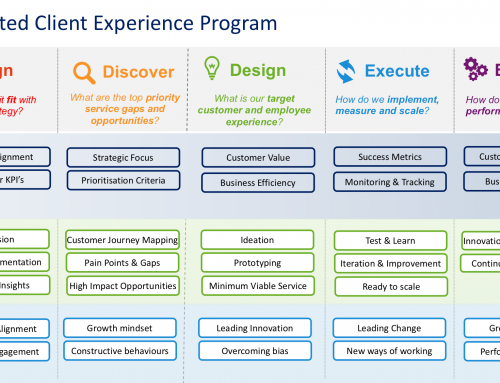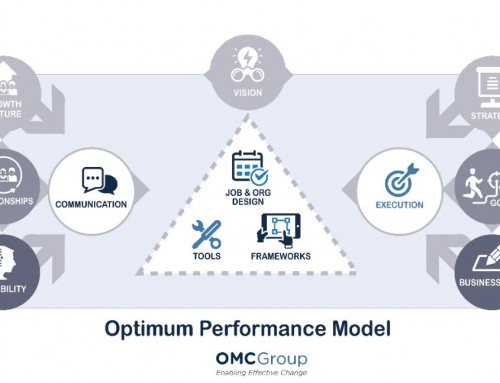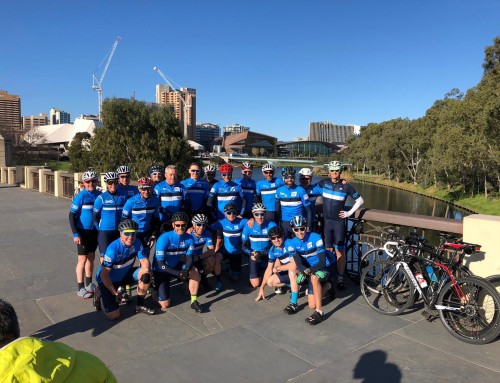Answer the following questions about intelligence. Reach each statement and decide whether you mostly agree with it or disagree with it:
- Your intelligence is something very basic about you that you can’t change very much
- You can learn new things, but you can’t really change how intelligent you are
- No matter how much intelligence you have, you can always change it quite a bit
- You can always substantially change how intelligent you are
How did you go, what were your responses?
In 2006, Dr Carol Dweck wrote a ground-breaking book “Mindset – Changing the you think to fulfil your potential”. Dr Dweck is one of the world’s leading researchers in the fields of personality, social psychology and developmental psychology. Dr Dweck made the observation that “people may start with different temperaments and different aptitudes, but it is clear that experience, training, and personal effort take them the rest of the way”.
Dr. Dweck originally became interested in the power of mindsets when looking at education & why was it that some students performed better than others. Originally it was about how people cope with failures – however it became much broader than that. She became intrigued by the power of personal narrative and self-talk that subsequently informed thinking patterns and behavior, and how this led to outcomes and sustained success.
Those individuals with a Fixed Mindset tended to believe that our intelligence was finite, that leaders were born and that our external environment had a significantly greater impact on the likelihood of success.
Individuals with a Growth Mindset however believe that intelligence can be developed (continuously), that we can all learn to be leaders and that whilst our external environment is important, it is not the sole determinant as to what success we will achieve in our lives.

Dr Dweck identified that we all experience both a Fixed Mindset and a Growth Mindset Fundamentally the Growth versus Fixed Mindset is about how we respond to and interpret stimulus (ie events, ie life, ie COVID). It’s about the mental model we bring to a situation and then how that subsequently determines our responses
So how is this relevant to Leaders? To us?
Right now, a growth mindset seems to be a really helpful way of thinking about what we need to do differently in response to the ever-changing environment.
As we turn our heads to what we need to do differently in service, quality, efficiency, innovation – whatever the immediate focus – a growth mindset culture would seem to be important.
So, the question is – what is your mindset right now? And what is the mindset of your organization? How is this current reality being viewed by you, and therefore how is that shaping your responses?
The 4 questions at the start of this article…..
Questions 1 and 2 are the fixed mindset questions.
Questions 3 and 4 reflect the growth mindset. Which mindset did you agree with more?
You can be a mixture of both, but most people lean toward on or the other.
We also all have beliefs about other abilities. We could substitute “artistic talent”, sports ability” or “business skill” for “intelligence” in the same 4 questions. Give it a go!
The other key aspect we need to explore here is our personal qualities. Here are 4 statements about personality and character – decide whether you mostly agree or mostly disagree with each one:
- You are a certain type of person, and there is not much that can be done to really change that
- No matter what type of person you are, you can always change substantially
- You can do thigs differently, but the important parts of who you are can’t really be changed
- You can always change basic things about the kind of person you are
With these questions, 1 and 3 are the Fixed Mindset questions and 2 and 4 reflect the Growth Mindset – which did you agree with more? Did it differ from the way in which you answered the intelligence questions? It can. Your “Intelligence Mindset” comes into play when situations involve mental ability. Your “Personality Mindset” comes into play in situations that involve your personal qualities – for example, how dependable, caring, and cooperative you are. The Fixed Mindset makes you concerned about how you will be judged, the growth mindset makes you concerned about improving.
So how is this relevant to Leaders? To us?
As we know, one of the key traits of Leaders over the last 12 months as being how we have dealt with ambiguity & the need to be adaptable. One of the many challenges we face is how do we continue to maintain our resilience, how do we continue to maintain and further develop that Growth Culture Mindset that has helped us survive, and how can we deploy it even more to ensure we thrive!
So, the question is – what is your mindset right now? And what is the mindset of your venue? How is this current reality being viewed by you, and therefore how is that shaping your responses?
Importantly, if you have recognized that you may have adopted more of a fixed rather than growth mindset, outlined below are 17 actions grouped under 4 themes that might be helpful. Have a look at this list and perhaps pick 2 that you can implement in the next 7 days. Make a note, then after 1 week, pick another 2 and give them a try. Perhaps tell your partner, a friend and or colleague what you are trying to do – get them to help you!

What about my team? What can I do to help them have more of a Growth Mindset?
The definition of culture is how we do things around here – actually it is how we are expected to do things around here.
The connection between Growth Mindset and Culture? – what are you doing to create a Growth or a Fixed mindset What are the systems, the frameworks, the actions of you and your leaders – and what mindset are they contributing to?
A 3-step approach to building a Growth Mindset Culture:
- Being clear about your preferred culture?
Our experience (and significant research suggests) that most of us (and our teams) want to work in an environment where:
- There are realistic but stretch goals
- That mean something to us / them
- We get feedback along the way
- And it’s a good team environment
This is our preferred culture and the themes that underpin this type of constructive culture are:
- Achieving what’s possible
- Being purposeful
- Being accountable
- Working together
So, what are you doing with your team to bring this to life?
You have a culture right now! The question is to what extent is resulting in a Fixed or Growth Mindset amongst your team.
Step 2 – making sure your culture is what you want it to be
The second step in building a Growth Mindset Culture is to objectively (with a Growth Mindset) evaluate your core people systems, frameworks and approaches:
- Vision / Mission / Purpose – whatever label you use – how clear are you people about this & more importantly, are they used to run the business, to inform key decisions?
- Structure – to what extent can your people influence key decisions & priorities (that are meaningful to them)
- Systems – Recruitment, training & selection – who do you recruit? What do you measure and what do you reward?
- Performance Management – really this is about to what extent can I get a sense of whether I am doing a good job or not – by myself
- Leadership – skills & qualities: what signals does your behavior send? How does this cause other Leaders to behave? What do our staff see us doing, focusing on, recognizing and rewarding?
Step 3 – Measuring the outcomes
Most businesses are effective at measuring outcomes – whether it be overall Gross Profit down to the specifics of cost per inventory item.
To really develop a Growth Mindset Culture though, we would also suggest a focus on measuring outcomes at an Individual, Team and Property level:
- At an individual level – if we get this right – I know what is expected of me, I’m inspired to give my best effort
- From a Team perspective – I count on my team members and we cooperate. More than that, there is cooperation amongst teams, and I feel my section produces work I can be proud of
- At a property level, I feel we meet customer expectations, I would actually buy the product myself, and recommend it to my friends and family





